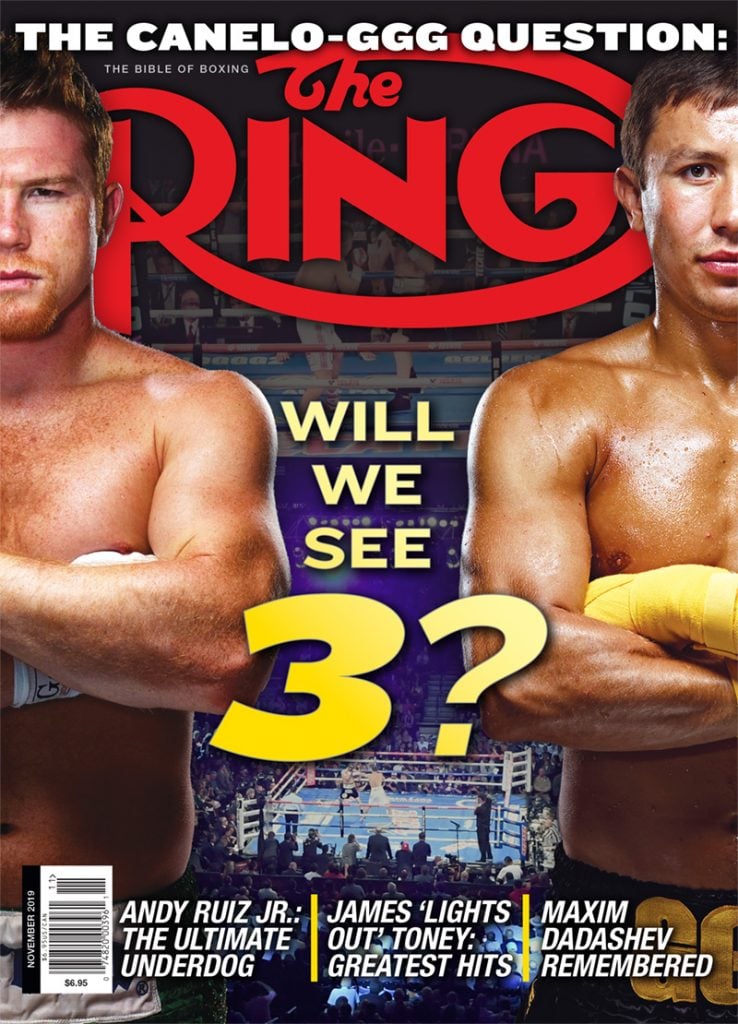20-20 vision – The greatest fighter from Japan: Fighting Harada

Most countries have produced at least one or two special boxers whose ring exploits have been etched permanently in our collective memory. That includes tiny nations like Puerto Rico and behemoths like the U.S. and Mexico, as well many in between.
In this feature, The Ring looks closely at 20 countries with strong boxing traditions and selects the best fighter from each.
The process wasn’t easy. First, we had to select the 20 countries, which proved to be painstaking. Some nations that have produced memorable fighters didn’t make the list. And, second, choosing a single boxer from the countries that did make the cut was easy in some cases – Panama, for example – but excruciating in others.
The countries will be rolled out in alphabetical order one day at a time at The Ring.
Notes: The “five more” listed at the bottom of each capsule were among other fighters in the discussion for each nation. … Some boxers lived in more than one country. We assigned each to the country where they spent their formative years. For example, a fighter who left one country as a small child was assigned to his second country.
JAPAN
FIGHTING HARADA
Birthdate / place: April 5, 1943 / Tokyo
Years active: 1960-70
Record: 55-7 (22 KOs)
Major titles: Ring and WBA flyweight (1962-63), Ring, WBA and WBC bantamweight (1965-68)
Greatest victories: Bernardo Caraballo, Eder Jofre (twice), Pone Kingpetch, Jose Medel, Alan Rudkin
Background: Masahiko “Fighting” Harada, the son of a Tokyo landscaper, became a professional boxer at the tender age of 16 and learned quickly. The aggressive, volume-punching whirlwind was only 19 years old when he knocked out Thai star Pone Kingpetch in the 11th round to win the world flyweight title in 1962 in Tokyo. Kingpetch won the immediate rematch by a majority decision before a hostile crowd in Bangkok but many who witnessed the fight believed Harada was robbed. No problem. Harada, who had trouble making the flyweight limit, moved up to bantamweight and continue to win. That run of success led to the two-fight series that define Harada as a great fighter. Eder Jofre, among the top pound-for-pound fighters, was the world 118-pound champion and undefeated when he went to Japan to defend against Harada in May 1965. The Tokyo punching machine built a big lead early and held on to beat the great Brazilian and fellow Hall of Famer by a split decision and become the first to win both flyweight and bantamweight titles. He then outpointed Jofre in the rematch the following year. Those are the only losses on Jofre’s record. Harada lost his title by a close, but unanimous decision to Lionel Rose in 1968 and immediately moved up to featherweight with what he called a “Triple Crown” in mind, a title in a third division. Harada got his chance against Australian Johnny Famechon in 1969 in Sydney. Harada put the Aussie down three times – and went down once himself – but lost a close, controversial decision. He came up short against Famechon again in a rematch and then retired as his country’s greatest champion.
Quote: “(Harada) had a lot of velocity in his arms, reaching to hit me recklessly several times. It was a style of his own that hindered the opponent when he tried to hit him,” Jofre told The Ring.
Five more from Japan (in alphabetical order): Yoko Gushiken, Naoya Inoue, Kazuto Ioka, Masao Ohba, Yoshio Shirai
Next up: Mexico
Ones you missed:
Argentina: Carlos Monzon
Australia: Jeff Fenech
Canada: Sam Langford
Cuba: Jose Napoles
France: Marcel Cerdan
Germany: Max Schmeling
Ghana: Azumah Nelson
Ireland: Barry McGuigan
Italy: Nino Benvenuti
Struggling to locate a copy of The Ring Magazine? Try here or
Subscribe
You can order the current issue, which is on newsstands, or back issues from our subscribe page.















